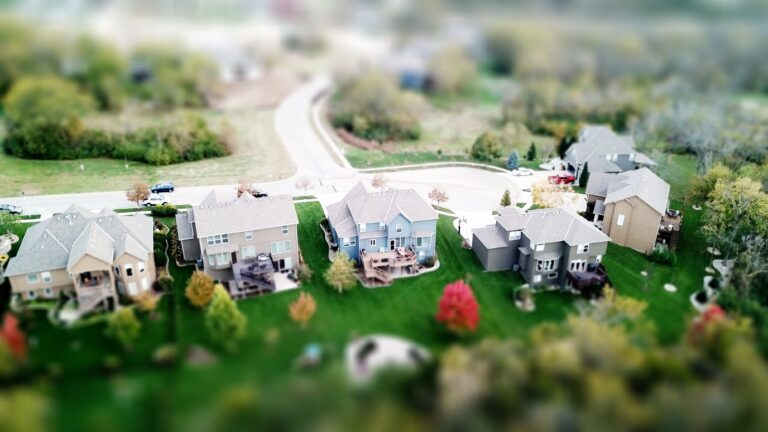Dubai, a city known for its opulent skyline and thriving real estate sector, is poised for a potential shift in dynamics next year. A recent report by S&P Global suggests a moderate cooling down of the market as property prices are expected to decelerate. In this article, we delve into the factors influencing this projected change and explore the unique elements that continue to set Dubai’s real estate market apart on the global stage.
Table of Contents
Price Deceleration on the Horizon
According to S&P Global, Dubai’s real estate sector is anticipated to expand by five to seven per cent in the upcoming year. Analysts Tatjana Lescova and Sapna Jagtiani, in their sector review, foresee a scenario where price increases could decelerate and potentially reverse slightly over the next 12-18 months. However, the anticipated decline is expected to be in the range of 5 per cent to 10 per cent, signaling a controlled adjustment rather than a market upheaval.
Villas Soar, Apartments Lag
The report highlights an interesting dichotomy between villas and apartments in Dubai. While villa prices have reportedly exceeded previous peak levels, apartments are trailing behind, lingering at 10 per cent to 20 per cent below their historical peaks. This discrepancy is attributed to a historical oversupply in the apartment segment, suggesting a market correction may be underway.
Global Trends Defied
Dubai’s real estate market has been defying global trends since 2021. Despite uncertainties in the global economy, the city has witnessed double-digit annual price increases, approaching previous peak levels. High pre-sales in 2023, contrary to earlier expectations of market stabilization, underscore the resilience of Dubai’s property market.
Driving Forces: Foreign Investments and Economic Resilience
Several factors contribute to the buoyancy of Dubai’s property market. Foreign investors, particularly high net worth individuals, continue to drive strong demand, especially for prime properties. Dubai’s immunity to external pressures from the sluggish global economy, demonstrated even during the pandemic, is a testament to its resilience.
Dubai’s diversified economy has played a crucial role in its steadfast performance post-pandemic. Despite higher funding costs and lingering inflation, the city’s economic growth is expected to average a robust 3 per cent over 2023-2024. This growth, coupled with a strong fiscal position, positions Dubai well for continued real estate market stability.
Sectoral Outlook: A Tale of Growth and Slowdown
S&P Global anticipates continued momentum in sectors such as hospitality, wholesale and retail, and financial services, driving overall growth in 2024-2025. However, the real estate sector is projected to experience a slowdown in the next 12-18 months, following a robust performance in 2023.
Population Growth and Tourism Resurgence
Dubai’s population has surged by over 2 per cent, reaching 3.6 million as of September 2023, according to the Dubai Statistics Center. International visitor numbers are also on the rebound, with Dubai International Airport handling over 41 million passengers in the first half of 2023, surpassing 2019 figures. This resurgence positions Dubai to achieve a full recovery in international visitors within just three years.
Rising Prices and the Risk of Reversal
As real estate prices in Dubai continue their upward trajectory, analysts caution against the mounting risk of a cyclical reversal. The anticipated deceleration in pre-sales, albeit to a still-healthy level, prompts developers to adapt their offerings to changing demand dynamics.
Developer Strategies: Adapting to Shifting Tides
In the analysts’ view, developers are likely to pivot their strategies to align with evolving market demands. Prime properties, including branded residences, are expected to remain resilient in the face of changing market conditions. Simultaneously, developers may shift focus to smaller units, reflecting a growing trend of downsizing as buyers seek more cost-effective options.
Conclusion
In conclusion, Dubai’s real estate market appears poised for a period of adjustment in the coming year. While the city has been a stronghold amid global uncertainties, the anticipated deceleration in property prices suggests a measured correction rather than a drastic downturn. As Dubai continues to navigate the ever-changing real estate landscape, the city’s resilient economy and strategic adaptation by developers will likely play pivotal roles in shaping its future trajectory.
Frequently Asked Questions (FAQs)
1. Are Dubai’s real estate prices expected to experience a significant decline in the coming year?
While a decline is anticipated, the projected range is moderate, with prices expected to decelerate and potentially reverse slightly, ranging between 5 per cent to 10 per cent.
2. What factors contribute to the continued buoyancy of Dubai’s property market?
Foreign investments, especially from high net worth individuals, and Dubai’s diversified economy contribute to the sustained demand and resilience of the real estate market.
3. How are developers expected to adapt to changing market dynamics?
Developers are likely to focus on prime properties, such as branded residences, with a resilient demand from high net worth individuals. Additionally, a shift towards smaller units is expected as buyers explore more cost-effective options in response to rising prices per square foot.






